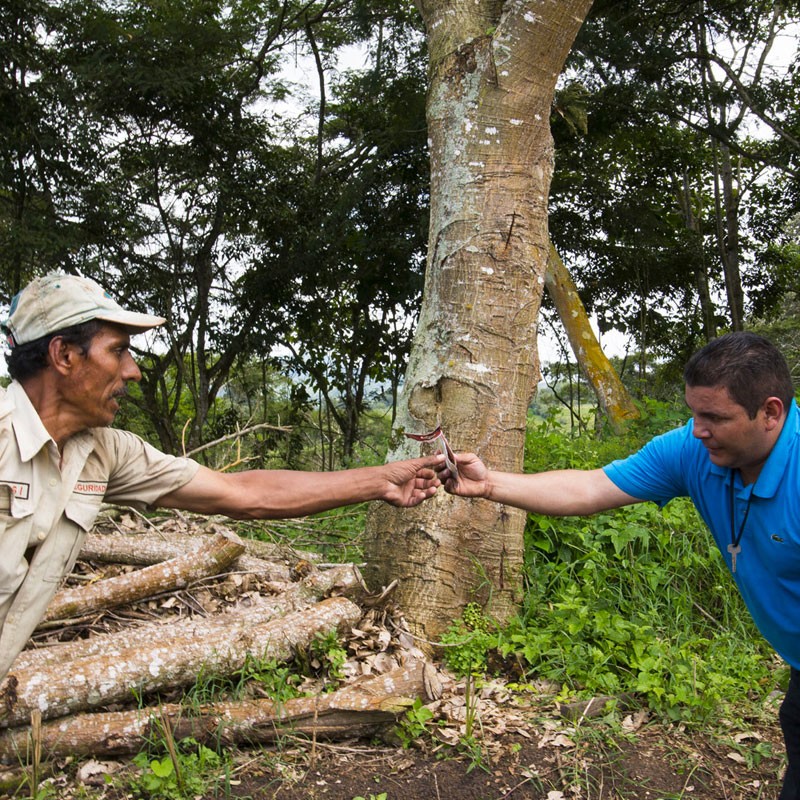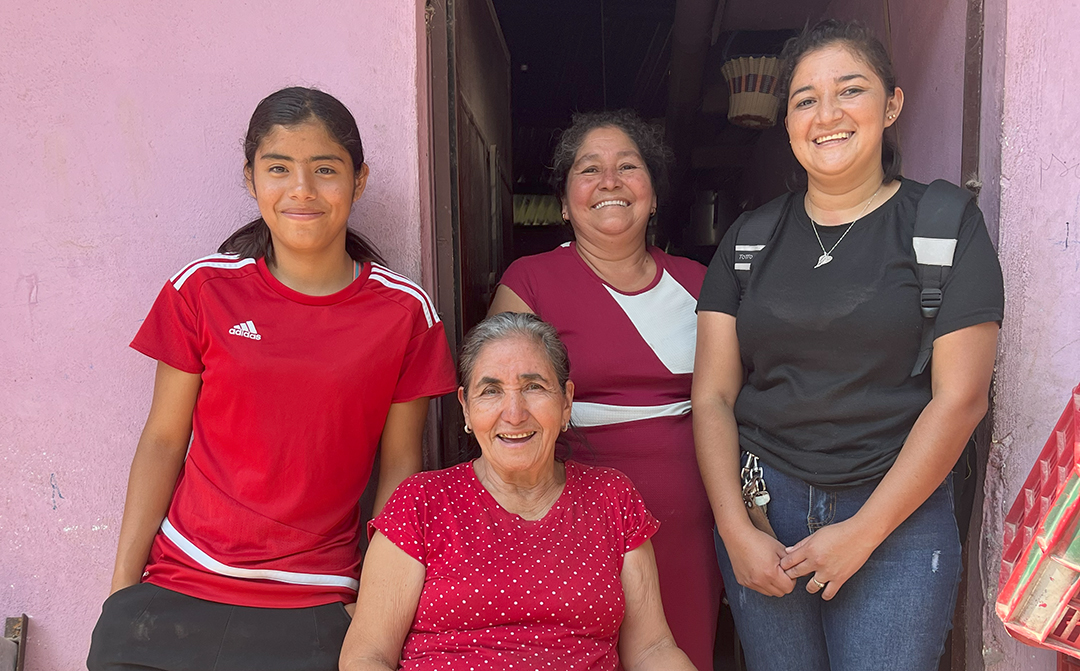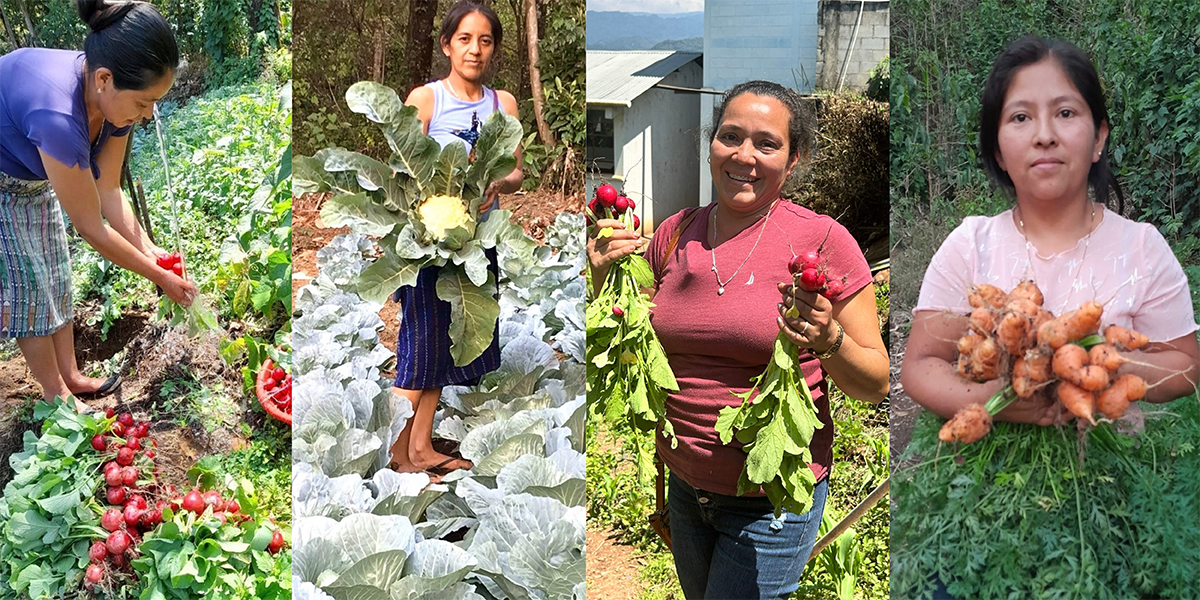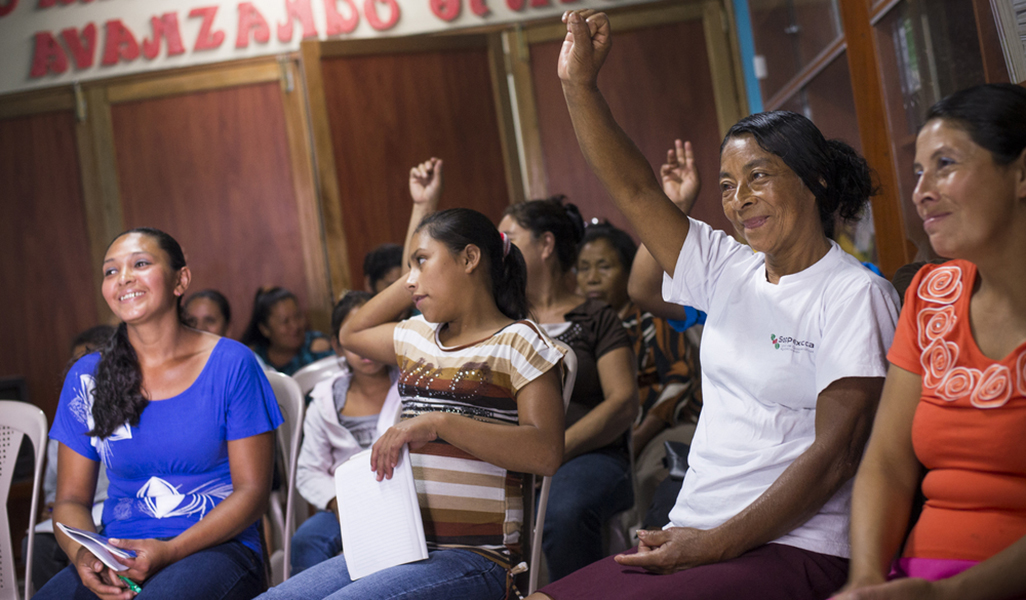Our Work
Food 4 Farmers helps coffee-farming families put nutritious food on the table every day. However, the scale and scope of the problem are much broader.
To address the systemic challenges at the heart of food insecurity, we use the power of collaboration with coffee-farming communities to develop strategies that reflect their needs and priorities, and ensure they have the necessary tools and resources to independently build food independence and new economic opportunities.
Coffee farmers are now leading the way, producing healthy, fresh food for their families and their rural communities. By growing food alongside coffee, they’re earning income, bolstering ecosystem health and climate resilience, and improving nutrition. The goal? Delivering enough healthy food, without expanding their farm footprint.
This is ‘transFARMation:’ farmers transforming monoculture farms into thriving, diversified local food and economic hubs, while continuing to produce coffee.
Our Approach
1 We build capacity from the inside out by cultivating leadership and expertise locally to lead and implement long-term strategies.
2 We collaborate with partners, cooperatives, and organizations deeply rooted in the communities they represent, so strategies fit each community’s culture, needs, and priorities.
3 We are data-driven, beginning with a participatory diagnostic that is inclusive and localized. Together, we create a roadmap for communities to achieve and measure results.
4 We are nimble. We provide an adaptable framework that supports a variety of community-led solutions.
5 We take a long-term approach, developing solutions based on trust and respect, because we understand that real and lasting change takes time and commitment.
Our Program Components
Every aspect of our work focuses on building our partners’ capacity to develop, manage, and sustain food security and livelihoods work on their own. From the diagnosis of an appropriate strategy to project management, monitoring and evaluation, and creating new business ventures, we work alongside our partners to ensure they can take greater control of food security in their communities.
Capacity Assessment
We begin each partnership by assessing the organizational capacity of our community partners, working with them to identify strengths, challenges, and opportunities. This creates a concrete understanding of organizational assets and weakness and provides the information needed to develop strategies with a strong likelihood of success. We work primarily with coffee cooperatives and community-based organizations representing small-scale farming families.
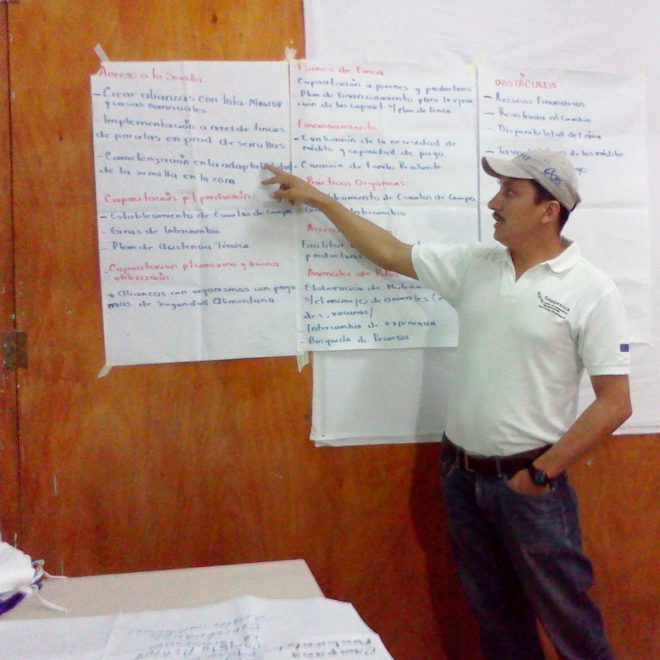
Community Diagnosis
The second step in our partnership is to conduct a community diagnostic to develop appropriate strategies and a baseline analysis that will guide our work together. This participatory process includes farmers, their families, and organization staff and Board members, ensuring all voices are heard.
The community diagnostic provides crucial information about the current level of food insecurity available resources; regional, social, geographic and economic characteristics; and most importantly the main challenges of achieving healthy and sustainable livelihoods. This diagnostic allows us to develop a timeline, benchmarks, and outcomes to keep the work on track.
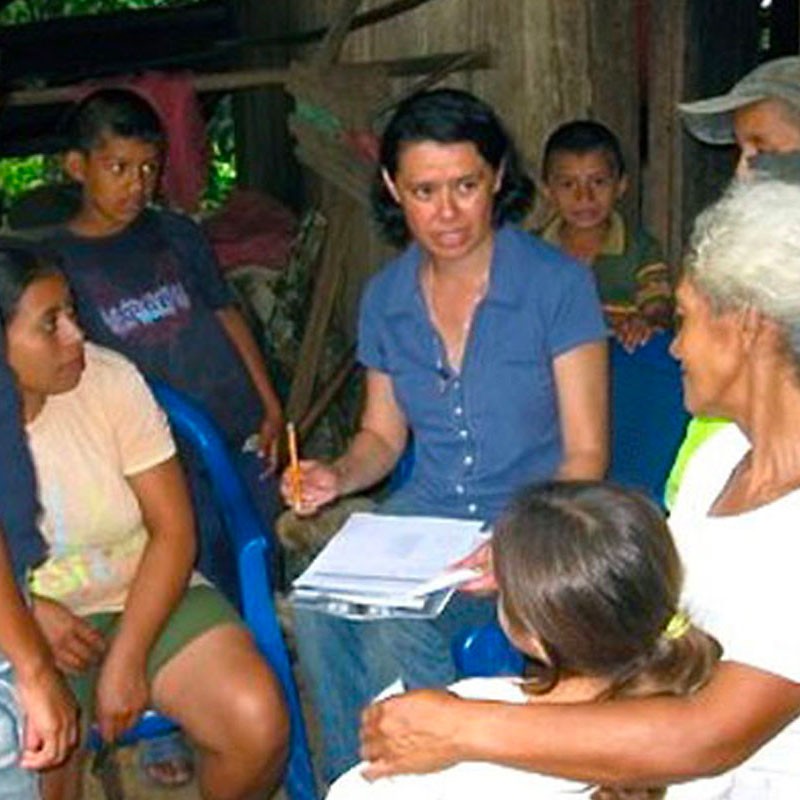
Plugging in Partners to Implement Strategies
Once key strategies are identified, we connect the community with local and regional organizations with reliable track records of implementing food security or agricultural diversification programs. To be successful, their mission and approach must be aligned with our own, as well as with the community’s goals.
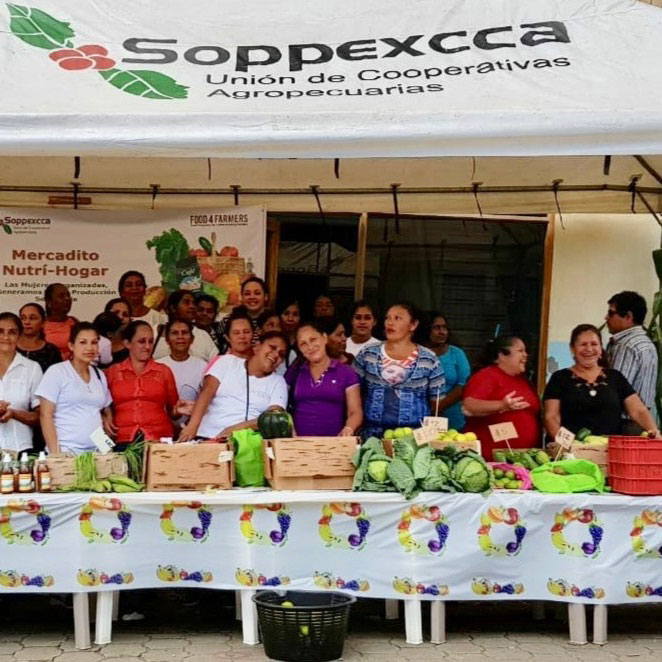
Monitoring & Evaluation
Our community diagnostic and baseline analyses lay the groundwork for us to build a robust monitoring & evaluation (M&E) system that fits the way our community partners work, reflecting their organizational capacity and culture.
A community-appropriate M&E system is essential to the success of a food security project. First, it keeps the community partner accountable to its stakeholders, like families who benefit from the project. Second, a strong M&E system helps the work stay on course by providing valuable information that allows our partners to identify what’s working – and what’s not – and make adjustments in a timely way to improve results.
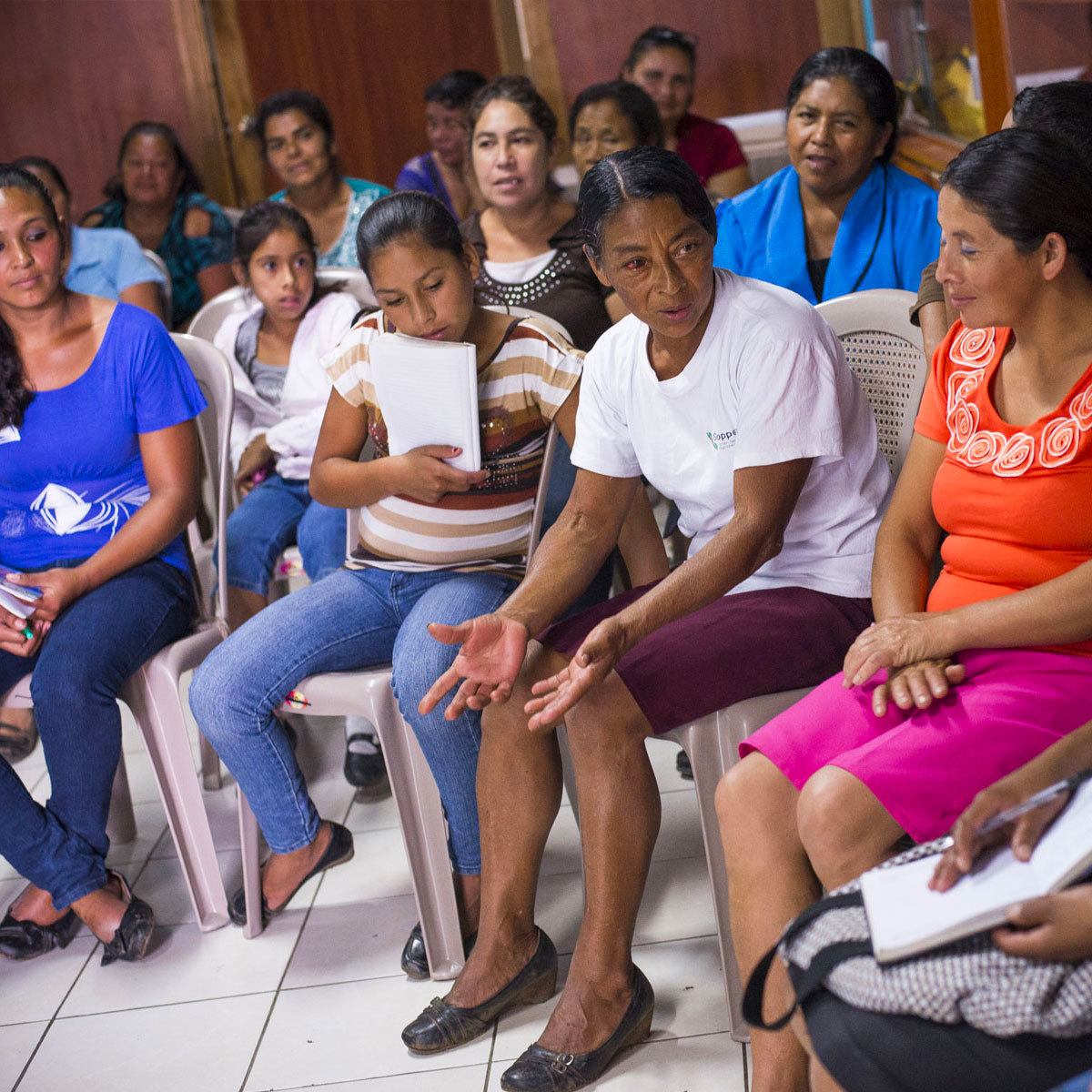
Building on Progress Over Time
As coffee co-ops develop the capacity to implement and manage projects successfully, they can then build on these successes by exploring additional ways to strengthen food security and livelihoods. Once a project is complete, we continue to work with our community partners in an advisory capacity as they build on the foundation of success they’ve established.
